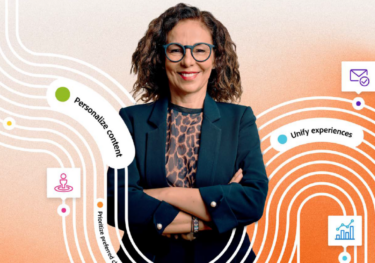Recent Release | 11 Nov 2022
2022 Climate Check: Business’ views on climate action ahead of COP27

Thought Leadership Team
Oxford Economics

In the last year, the world has been upended by the war in Ukraine, soaring inflation, and the ongoing COVID-19 pandemic—each of which has competed for the attention and funds needed to address climate change.
Ahead of this year’s COP27, Deloitte teamed up with Oxford Economics to understand the climate initiatives currently being taken by business, as well as the reasoning by the business leaders behind these efforts. The resulting survey of 700 executives worldwide sheds new light on their goals, concerns, and tradeoffs surrounding the climate crisis in a world of competing priorities.
The study’s key findings include:
- Executives still see investing in environmentally sustainable practices as good business; 87% believe such practices provide long-term financial benefits.
- Nearly 40% of businesses will accelerate sustainability efforts in the next year, although inflation and geopolitical challenges are constraining corporate climate and sustainability strategies.
- While 55% of executives support new government climate regulations, only 27% want governments to prioritize the enforcement of existing regulations.
- Most companies have initiated climate mitigation and/or adaptation strategies, but certain industries are obviously lagging.
- Executives’ primary global concerns are security risks related to climate change.
About the team
Our Thought Leadership team produces original, evidence-based research made accessible to decision-makers and opinion leaders. Principals for this project included:

Sundus Alfi
Senior Research Manager, Thought Leadership

Kayla Luparello
Research Associate, Thought Leadership
You might be interested in

Thriving beyond boundaries: Human performance in a boundaryless world
In collaboration with Deloitte, Oxford Economics surveyed 1,000 global executives and board leaders in order to understand their perspectives on emerging human capital issues.
Find Out More
TikTok: Helping grow small and midsized businesses and deliver value for consumers across the United States
Starting in late May 2023, Oxford Economics, in collaboration with TikTok, initiated a study to better measure the economic value of the TikTok platform to local communities across the US. As part of the research, we surveyed 1,050 SMBs that use TikTok, and 7,500 TikTok users to learn how businesses and users interact with the app and leverage the economic and social opportunities it provides.
Find Out More
Seeing behind the meter: How electric utilities are adapting to the surge in distributed energy resources
In partnership with Siemens, Oxford Economics surveyed 100 decision-makers from electric utilities in North America to gain insight into how they are managing their grid with the influx of electric vehicles, solar panels, and batteries.
Find Out More
State of Digital Customer Experience: How Generative AI and Personalization Are Transforming the Digital Customer Experience Landscape
Customers around the world are looking for speed, security, and personalization when interacting with brands, and executives across industries will need to adapt to these expectations quickly to stay ahead of their competition. Our 2023 State of Digital Customer Experience report, developed in collaboration with Adobe, examines how businesses can leverage technologies like generative AI to improve their customer experience strategies.
Find Out More